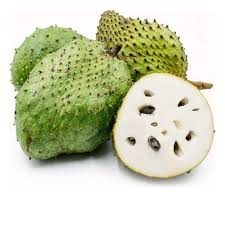Nutritional composition of cashew
Cashews are known to be very nutritious and it is a powerhouse of proteins and various essential minerals such as calcium, copper, magnesium, phosphorus, iron, zinc and potassium. Sodium is also found to be present in trace amounts.
Cashews contains the following vitamins:
Vitamin B1 (thiamin)
Vitamin B2 (riboflavin)
Vitamin B3 (niacin)
Vitamin B6
Vitamin C,
Folate
Health benefits of cashew
1. Heart health
Cashews are good source of monounsaturated fats (healthy dietary fats) that are very friendly to the heart. The healthy dietary fats are essential for our body because they makes it possible for the body to absorb the fat-soluble vitamins A, D, E and K and produce fatty acids that are vital for the development of the brain and blood clotting.
2. Weight management
Cashew is known to contain a relatively high fat content (12 grams per ounce, 2 gram saturated fat), but it is also termed as “good fat”. It is a good fat because of the agreeable fat ratio in the nut of 1:2:1 for saturated, monounsaturated and poly-unsaturated respectively, which scientist have agreed that it is the ideal ratio for optimal health.
3. Healthy muscles and nerves
Cashew is vital for the development of bones, tissues, muscles, and organs of the body because it is a good source of magnesium. Magnesium also facilitates the maintenance of healthy blood pressure, sustain the immune system, maintain nerve functions and keep the bones strong. A deficiency of magnesium causes disruption in the metabolism of calcium and the hormones responsible for its regulation.
4. Diabetes
Since cashew contains a very low amount of sugar and no harmful cholesterol. it is highly safe for those suffering from diabetes. It is also effective in lowering the risk of type2 diabetes.
5. Chemotherapy
Cashew contains wealth of antioxidants like anacardic acids, cardanols and cardols. Research have proven that these antioxidants makes cashew to be effective for people undergoing treatments for tumour and cancer.
6. Formation of red blood cells
Cashew contains a huge amount of copper, and copper helps in iron metabolism, formation of red blood cells and assist in keeping bones and immune systems healthy. It is also vital for the nervous and skeletal system of the body. Copper deficiency in humans may result to anaemia, osteoporosis, and irregular heartbeats.
7. Bone and oral health
Phosphorus is also found in cashew, which is essential for the healthy development of teeth and bones. Phosphorus also assists in protein synthesis, maintenance of cellular health, absorption of carbohydrates and fats.
8. Gall stones
Gallstones are stone-like deposits that usually consist of cholesterol that accumulates in the gall bladder. The regular inclusion of healthy nuts like cashews can help to lower the risk of formation of gallstones.
9. Immune system
Cashew plays a vital role in the strengthening of the immune system because of the zinc contained in it. Zinc additionally helps in protein synthesis and healing of wounds.
10. Cancer prevention
Cashew are rich in proanthocyanidins, a class of flavanols that actually starve tumours and inhibits the division of cancer cells. Studies have also shown that cashews are capable of reducing the risk of colon cancers.
11. Hair and skin health
Cashews are rich in copper. Copper is an essential component of many enzymes and it plays a part in a broad array of processes. One copper-containing enzymes called tyrosinase, converts tyrosine to melanin, the pigment that gives colouration to the hair and skin.
References: ehfblog.com
Sylvanus Gbandeh's Health talks-Archives.
Cashews are known to be very nutritious and it is a powerhouse of proteins and various essential minerals such as calcium, copper, magnesium, phosphorus, iron, zinc and potassium. Sodium is also found to be present in trace amounts.
Cashews contains the following vitamins:
Vitamin B1 (thiamin)
Vitamin B2 (riboflavin)
Vitamin B3 (niacin)
Vitamin B6
Vitamin C,
Folate
Health benefits of cashew
1. Heart health
Cashews are good source of monounsaturated fats (healthy dietary fats) that are very friendly to the heart. The healthy dietary fats are essential for our body because they makes it possible for the body to absorb the fat-soluble vitamins A, D, E and K and produce fatty acids that are vital for the development of the brain and blood clotting.
2. Weight management
Cashew is known to contain a relatively high fat content (12 grams per ounce, 2 gram saturated fat), but it is also termed as “good fat”. It is a good fat because of the agreeable fat ratio in the nut of 1:2:1 for saturated, monounsaturated and poly-unsaturated respectively, which scientist have agreed that it is the ideal ratio for optimal health.
3. Healthy muscles and nerves
Cashew is vital for the development of bones, tissues, muscles, and organs of the body because it is a good source of magnesium. Magnesium also facilitates the maintenance of healthy blood pressure, sustain the immune system, maintain nerve functions and keep the bones strong. A deficiency of magnesium causes disruption in the metabolism of calcium and the hormones responsible for its regulation.
4. Diabetes
Since cashew contains a very low amount of sugar and no harmful cholesterol. it is highly safe for those suffering from diabetes. It is also effective in lowering the risk of type2 diabetes.
5. Chemotherapy
Cashew contains wealth of antioxidants like anacardic acids, cardanols and cardols. Research have proven that these antioxidants makes cashew to be effective for people undergoing treatments for tumour and cancer.
6. Formation of red blood cells
Cashew contains a huge amount of copper, and copper helps in iron metabolism, formation of red blood cells and assist in keeping bones and immune systems healthy. It is also vital for the nervous and skeletal system of the body. Copper deficiency in humans may result to anaemia, osteoporosis, and irregular heartbeats.
7. Bone and oral health
Phosphorus is also found in cashew, which is essential for the healthy development of teeth and bones. Phosphorus also assists in protein synthesis, maintenance of cellular health, absorption of carbohydrates and fats.
8. Gall stones
Gallstones are stone-like deposits that usually consist of cholesterol that accumulates in the gall bladder. The regular inclusion of healthy nuts like cashews can help to lower the risk of formation of gallstones.
9. Immune system
Cashew plays a vital role in the strengthening of the immune system because of the zinc contained in it. Zinc additionally helps in protein synthesis and healing of wounds.
10. Cancer prevention
Cashew are rich in proanthocyanidins, a class of flavanols that actually starve tumours and inhibits the division of cancer cells. Studies have also shown that cashews are capable of reducing the risk of colon cancers.
11. Hair and skin health
Cashews are rich in copper. Copper is an essential component of many enzymes and it plays a part in a broad array of processes. One copper-containing enzymes called tyrosinase, converts tyrosine to melanin, the pigment that gives colouration to the hair and skin.
References: ehfblog.com
Sylvanus Gbandeh's Health talks-Archives.
Nutritional composition of cashew
Cashews are known to be very nutritious and it is a powerhouse of proteins and various essential minerals such as calcium, copper, magnesium, phosphorus, iron, zinc and potassium. Sodium is also found to be present in trace amounts.
Cashews contains the following vitamins:
Vitamin B1 (thiamin)
Vitamin B2 (riboflavin)
Vitamin B3 (niacin)
Vitamin B6
Vitamin C,
Folate
Health benefits of cashew
1. Heart health
Cashews are good source of monounsaturated fats (healthy dietary fats) that are very friendly to the heart. The healthy dietary fats are essential for our body because they makes it possible for the body to absorb the fat-soluble vitamins A, D, E and K and produce fatty acids that are vital for the development of the brain and blood clotting.
2. Weight management
Cashew is known to contain a relatively high fat content (12 grams per ounce, 2 gram saturated fat), but it is also termed as “good fat”. It is a good fat because of the agreeable fat ratio in the nut of 1:2:1 for saturated, monounsaturated and poly-unsaturated respectively, which scientist have agreed that it is the ideal ratio for optimal health.
3. Healthy muscles and nerves
Cashew is vital for the development of bones, tissues, muscles, and organs of the body because it is a good source of magnesium. Magnesium also facilitates the maintenance of healthy blood pressure, sustain the immune system, maintain nerve functions and keep the bones strong. A deficiency of magnesium causes disruption in the metabolism of calcium and the hormones responsible for its regulation.
4. Diabetes
Since cashew contains a very low amount of sugar and no harmful cholesterol. it is highly safe for those suffering from diabetes. It is also effective in lowering the risk of type2 diabetes.
5. Chemotherapy
Cashew contains wealth of antioxidants like anacardic acids, cardanols and cardols. Research have proven that these antioxidants makes cashew to be effective for people undergoing treatments for tumour and cancer.
6. Formation of red blood cells
Cashew contains a huge amount of copper, and copper helps in iron metabolism, formation of red blood cells and assist in keeping bones and immune systems healthy. It is also vital for the nervous and skeletal system of the body. Copper deficiency in humans may result to anaemia, osteoporosis, and irregular heartbeats.
7. Bone and oral health
Phosphorus is also found in cashew, which is essential for the healthy development of teeth and bones. Phosphorus also assists in protein synthesis, maintenance of cellular health, absorption of carbohydrates and fats.
8. Gall stones
Gallstones are stone-like deposits that usually consist of cholesterol that accumulates in the gall bladder. The regular inclusion of healthy nuts like cashews can help to lower the risk of formation of gallstones.
9. Immune system
Cashew plays a vital role in the strengthening of the immune system because of the zinc contained in it. Zinc additionally helps in protein synthesis and healing of wounds.
10. Cancer prevention
Cashew are rich in proanthocyanidins, a class of flavanols that actually starve tumours and inhibits the division of cancer cells. Studies have also shown that cashews are capable of reducing the risk of colon cancers.
11. Hair and skin health
Cashews are rich in copper. Copper is an essential component of many enzymes and it plays a part in a broad array of processes. One copper-containing enzymes called tyrosinase, converts tyrosine to melanin, the pigment that gives colouration to the hair and skin.
References: ehfblog.com
Sylvanus Gbandeh's Health talks-Archives.







